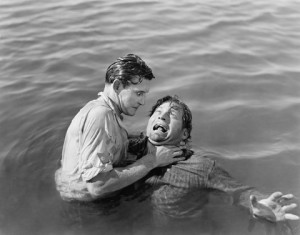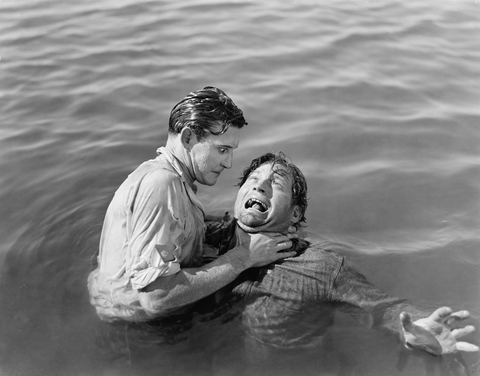
In April of 2006, I first read Irving Kirsch’s 2002 article, “The Emperor’s New Drugs.” In that article, Kirsch described how 80% of the response to antidepressant medications was duplicated in placebo control groups. Kirsch’s analysis was of the very same clinical data submitted to the FDA between 1987 and 1999 for the approval of 6 widely prescribed antidepressants. The allusion to Hans Christian Andersen’s tale, “The Emperor’s New Clothes” was fitting. Kirsch played the role of the little boy in Andersen’s tale to my understanding of how antidepressants work. He pointed to antidepressants and said: “But they have little or no therapeutic effect at all!”
Since 2006 I’ve become familiar with the work of several individuals questioning the received wisdom of psychotropic medications, including Joanna Moncrieff. Her book, The Myth of the Chemical Cure, had its own “aha!” moment in the development of my thinking on the clinical use of psychiatric medications. A search of “Faith Seeking Understanding” by their names will pull up other articles where I have referenced them.
Not too long ago, I saw a link to a new article by Joanna Moncrieff and Irving Kirsch, “Empirically derived criteria cast doubt on the clinical significance of antidepressant-placebo differences.” I’ve read previous articles written by Moncrieff and Kirsch, “Efficacy of antidepressants in adults” and “Clinical trials and the response rate illusion.” But still looked forward to reading their latest. It seems to have hammered home the final nail in the coffin of the ineffectiveness of antidepressants for me.
In “The Emperor’s New Drugs,” Kirsch found that the drug/placebo difference was less than 2 points on the Hamilton-D (HAM-D) scale, a scale often used in studies for assessing the effects of antidepressants. Even then, Kirsch et al. were saying that: “the clinical significance of these differences is questionable.” The spin put on his conclusions was that this was only to hold true only for individuals with mild cases of depression. Moderate to severe depression should still have antidepressants as a first-line treatment.
However, in “Efficacy of antidepressants in adults,” Moncrieff and Kirsch pointed out that the studies included in “The Emperor’s New Drugs,” were mainly with patients suffering with severe to very severe depression. They cited additional studies questioning the efficacy of antidepressants and concluded: “Recent meta-analyses show selective serotonin reuptake inhibitors have no clinically meaningful advantage over placebo;” and that “Claims that antidepressants are more effective in more severe conditions have little evidence to support them.”
In their most recent article, Moncrieff and Kirsch tackled the issue of how antidepressants have been shown to be statistically superior to placebo. This statistical significance has been true from the time of Kirsch’s work on “The Emperor’s New Drugs, ” where the authors said that: “Although mean differences were small, most of them favored the active drug, and overall, the difference was statistically significant.” Moncrieff and Kirsch commented that a three-point difference on the HAM-D scale could not be detected by clinicians. Clinically relevant drug-placebo differences would have to be 7 points or greater on the HAM-D scale. “Currently, drug effects associated with antidepressants fall far short of these criteria.”
These conclusions were built upon the work of German psychiatrist Stefan Leucht and his colleagues. You can read a less technical discussion of the importance of this research in Dr. Moncrieff’s blog, here. She said that a reduction of 2 points on the 52 point HAM-D scale, while statistically significant, seemed to be an insignificant amount. “Leucht et al. provide some empirical evidence to support that hunch.”
Given that there was little if any difference in clinically relevant effects between one treatment and another, Moncrieff and Kirsch suggested that patients and healthcare providers should be aware that all treatments, including placebo, produce some positive effect on symptom scales, “while none outperforms a pill placebo to a meaningful degree.”
The small differences detected between antidepressants and placebo may represent drug-induced mental alterations (such as sedation or emotional blunting) or amplified placebo effects rather than specific ‘antidepressant’ effects. At a minimum, therefore, it is important to ascertain whether differences correlate with clinically detectable and meaningful levels of improvement.
So where does this discussion lead us? Treating depressive symptoms with antidepressants should not be a first option. “Given the choice, most depressed patients prefer psychotherapy over medication.” Moncrieff and Kirsch suggest that decisions about treatment should include patient preference, safety and cost. With regard to safety, antidepressants should be a last choice for treatment alternatives.
Their article referenced a study by Andrews et al., “Primum non nocere” (first, do no harm), which noted a series of harmful effects from SSRIs. Serotonin has wide reaching effects on adaptive processes throughout the body and could have many adverse health effects. They described how antidepressants effect the proper functioning of homeostatic mechanisms in the body. Long-term use is associated with a loss of symptom reducing effectiveness with SSRIs. This suggests that the brain is pushing back against the effects of SSRIs and trying to regain the homeostasis present before the use of antidepressants began. “Because of the complex role that serotonin plays in shaping the brain, antidepressants could have complex effects on neuronal functioning.”
Additional negative side effects included attention problems, driving performance, falling and bone fractures in the elderly, gastrointestinal problems such as diarrhea, constipation and irritable bowel syndrome. SSRIs may increase the risk of abnormal bleeding. They can related to an increase risk of cardiovascular events. There is concern that SSRIs can effect neonatal development. One study suggested SSRI use during pregnancy, especially the first trimester, led to an increased risk of Autism Spectrum Disorders. Andrews et al. summarized their findings here:
We have reviewed a great deal of evidence of the effects of antidepressants on serotonergic processes throughout the body. Some of the effects are widely known, but they have been largely ignored in debates about the utility of antidepressants. Indeed, it is widely believed that antidepressant medications are both safe and effective; however, this belief was formed in the absence of adequate scientific verification. The weight of current evidence suggests that, in general, antidepressants are neither safe nor effective; they appear to do more harm than good.





